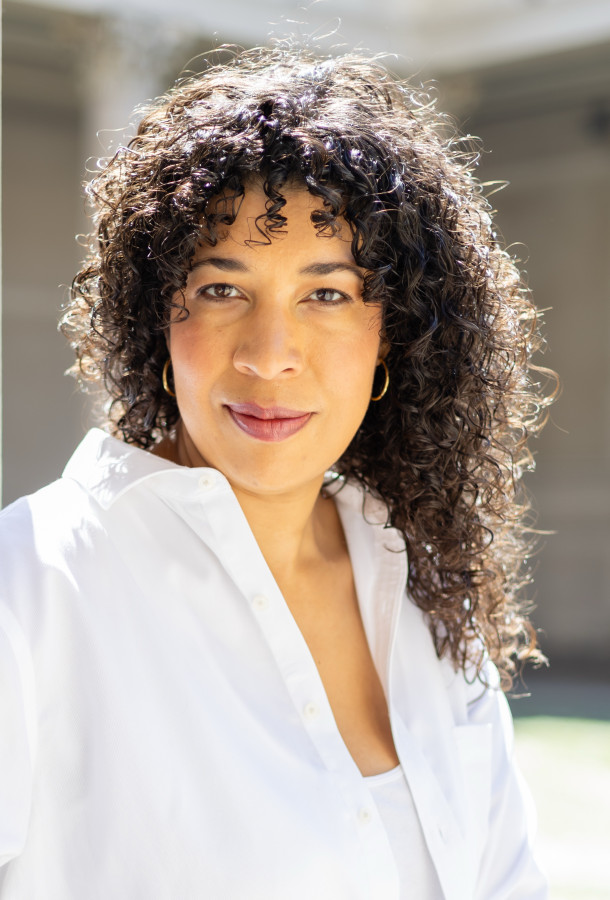Beyond Success: How To Find Resilience, Agency, and Fulfillment

Soprano Mary Elizabeth Williams and executive advisor Barbara Massury begin a series of conversations on resilience, agency, and fulfillment. Follow along as this series unfolds.
When Barbara Massury and I first met, I was singing the title role in Aida with Cincinnati Opera in 2022. Her life partner, the esteemed baritone Gordon Hawkins, was playing my father, Amonasro. A year later we were together again in Santa Fe; Hawkins was working with the young artists and I was singing the Foreign Princess in Rusalka. After a while, our socializing became more intimate and more deliberate. We stopped just having those superficial opening-night party conversations (What have you been up to since I saw you last? Where are you headed next?, etc., etc.) and started organizing dinners and coffee dates so we could really talk. Barbara and I are both people who don’t like to waste time treading water at the surface of a conversation.
It was a really scary time for me professionally and artistically; I was coming out of the COVID desert, during which most of my singing work had been canceled or postponed for several years. The work that I was being offered post-pandemic was not in my wheelhouse and felt completely out of left field. I was 46 years old, and I had spent 15 years singing Verdi and big bel canto roles with an occasional Tosca or Porgy and Bess thrown in for spice, and suddenly from about 2021, I was being asked to sing Wagner, Dvořák, Bartók, and Schoenberg. I felt like a fish out of water, but I also felt that I had to shut up, be grateful I had a job, and figure out how to sing what I was being offered.

Whether this was my pond or not, I knew I had to sink or swim in whatever waters surrounded me. I was determined to stay on stage, but I felt like I was holding on by my fingernails. I had just sung my first two productions of Tristan und Isolde, and although I enjoyed the process and was proud of the work I did, my performance of Isolde was controversial and not universally well-received. The pushback I received from critics and audiences provoked new and unnerving feelings in me, and caused me to ask myself tough questions about how I wanted to define myself as an artist. I didn’t know where I belonged in the business anymore, and I felt out of touch with the market. At the same time, I said to myself: you’ve had a successful career for 20 years. Are you being greedy? Is it time to take the hint, get off the treadmill, and explore life off the stage?

So, I was in a contemplative, messy place in Santa Fe. It was a happy coincidence for me that Barbara Massury and I were in the same city, at the same time, at that critical juncture in my career. Barbara is not “in the business,” but she has been operating at the edges of the opera world for over a decade. She is self-possessed, savvy, and an astute listener. I was lucky to have had the luxury of using her as a sounding board during those weeks, because helping people figure out how to get through touchy career moments is precisely what Barbara does for a living.
Massury is an executive advisor and consultant who helps high level managers of international companies lead and communicate better, increase their productivity, and improve their quality of life. It turns out the challenges I was working through that summer in Santa Fe closely resemble the issues that Barbara helps her corporate clients face and resolve every day. We realized that the techniques she uses to strategize, innovate, and lead in the business world were the same ones I was developing to find resilience as an artist. We were looking at the same coin, from two different sides. The exchanges we had two years ago in Santa Fe were clarifying for both of us; Barbara has since expanded her practice to include The Crescendo Leadership Program, a consultancy initiative for elite performers, and I have since found creative balance and artistic agency I never imagined possible for myself.

I believe Barbara’s perspective could be invaluable for all singers who are confronting evolutions in their career landscapes, so I invited her to sit down with me to talk about her philosophy, and her exciting new work with artists in transition. I encourage you to read our wide-ranging interview over the course of this series. In it, Barbara recounts illuminating anecdotes from her clients’ journeys of empowerment and self-discovery, as well as a very helpful warm-up exercise you can try right away.
Here is a taste of all that we discussed.
This Need is Real!
Corporate leaders and mid-career singers face similarly stressful challenges, but typically receive very different support to face those challenges. Neutral, independent strategic advising is a resource that is desperately needed for performing artists.
Massury: In the business world, nowadays, it’s standard industry practice that leaders and high achievers get structured support from executive coaches, mentors, or advisors. These managers have advisors who understand their patterns, and help them think strategically, navigate challenges, and keep a long-term perspective. In fact, around 50-70% of CEOs have worked with a mentor at some point in their careers.
Singers, on the other hand? Sure, they have managers and agents, and those roles are super important. But that kind of support is very different from having someone who helps you step back and really think about who you are and what you need. I’m talking about someone who focuses on the bigger picture, a neutral sounding board who helps you navigate transitions, manage difficult dynamics or develop new approaches to stay the course. An advisor is someone who supports you in times of crisis, and helps you to be resilient under pressure. They provide you with guidance tailored to you as a person and your desire to build a sustainable personal and professional path for the future.
For a long time, I kept thinking: Why don’t singers have access to this kind of support too? Conversations with so many artists over the years have shown me that this need is real. Yes, singers get artistic and technical guidance. But what’s missing is a layer of support for the non-musical challenges: stress, uncertainty, decision-making, pressure and priority challenges that come with these demanding careers. Core questions like: What is success for me? If success mostly means fame and getting the most amount of work, then you might be caught up in a bubble that is defined by circumstances, not by what you actually desire and need.
It’s About Listening
The first step to building sustainable and dynamic success is developing the ability to read and follow your inner compass and identify your unique aspirations. Barbara and I talk about how artists can—and should—borrow tools from the corporate world like scenario planning, leadership principles, and risk management. The goal is not to turn you, an artist, into a model business leader, but to help you get clear about what drives you, and to visualize (and build) a career that works for you instead of squeezing you into a predetermined mold.
Massury: When working with clients, my goal is to provide clarity, calm and impact through structured and intentional guidance. I use a beautiful — long! — German word for it: “Sehnsuchtshege.” The literal translation would be something like “nurturing longing.” It’s about listening and tending to inner wishes and dreams, rather than suppressing them.
I use the same tools a good voice teacher employs: I listen. There are two elements to this: listening to and listening for! I listen to the performer, but I listen for the artist, the writer, the person, the unique human being behind the stage, behind the top performance and the facade!
What is Success for Me?
This kind of discovery work is not an exercise program or a step-by-step process to be completed, but a practice to be adopted and integrated into your lifestyle. Singers are trained like athletes: refine constantly and repeat until it becomes second nature. Singing may be athletic but the business is not; sports are most often scored objectively, but singers have no chance of escaping opinions and personal tastes. Technical mastery alone cannot guide an artist through a sustainable, healthy, and long career. Executive advising can help tap into a performer’s natural leadership skills to help navigate the complexities of the artistic and professional world with acumen and grace.
Massury: There is an extra layer of complexity for performers on stage; it is “agency” or, better, the lack thereof. So much is beyond your control, including audience tastes, theatre budgets, directors’ preferences, casting decisions. So the question becomes: how do I stay positive, focused, and healthy, mentally, physically and emotionally, when so much feels out of my hands? What do I actually have agency over? Who and what define my artistic path and my personal north star?
To recognize the conditions in which you can thrive, not just strive to perform well or get paid at any cost is critical. That’s the work we need to be doing; not just for executives in boardrooms, but for the artists who stand under the lights and give so much of themselves.
A journey to self-understanding pays lifetime dividends. The power of aligning your understanding of success to reflect your whole human and artistic being are incalculable; I have experienced it personally. If you are in a time of flux in your career or wondering about your path forward, embrace it as an opportunity to evolve into a more complete version of yourself. As Barbara said to me recently, “Everything you need is already there! It just needs to be brought to use in a different and more conscious way.” Sustainable success isn’t within reach. It’s already within you.
Barbara Massury and Mary Elizabeth Williams will continue to examine mid-career transition questions in an online column. They will be responding to anonymous questions from their unique but complementary points of view. Please submit your questions to Barbara and Mary Elizabeth by writing to them at twoanswersonequestion@gmail.com.